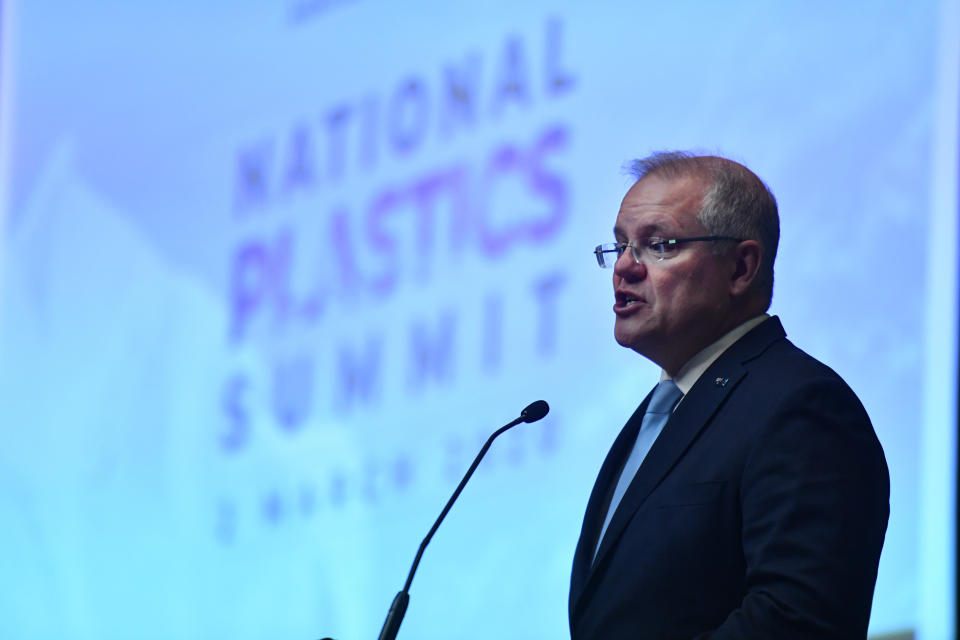McDonald's announces plans to eliminate basic item from stores
McDonald’s has announced it will phase out plastic cutlery from all of its stores across Australia.
The fast food giant says all plastic cutlery will be removed from stores by 2020 and will be replaced by fibre-based alternatives.
The switch will result in 585 tonnes of plastic removed from stores annually.
The decision comes after last year’s move to remove plastic straws – 500 million annually – from stores.
“By removing plastic straws and cutlery from McDonald’s restaurants, we are continuing to reduce our environmental footprint and will be removing more than 860 tonnes of plastic from our system,” Director of Supply Chain and Sustainability, Kylie Freeland said.

According to McDonald’s, 85 per cent of their packaging is now fibre-based.
Ms Freeland called McDonald’s an “industry leader in sustainable practices”.
Scott Morrison commits to war on waste
At a one-day national plastics summit in Canberra on Monday, Prime Minister Scott Morrison revealed the government will focus on ocean pollution, increasing interest in recycled products, finalising a ban on waste exports and improving recycling infrastructure.
Every year, eight million tonnes of plastic winds up in the nation's oceans.
More than 1.4 million tonnes of waste plastic, paper, glass and tyres is exported annually.
Mr Morrison also noted the impact of plastic waste on Australia's "Pacific family".

At the summit, Nestlé and Australian recycler iQ Renew announced a trial collecting soft plastics from more than 100,000 homes through kerbside recycling and diverted from landfill.
The Australian Council of Recycling said the summit was an opportunity for real action.
"A summit that puts substance before stylistics is what we need to deal with the plastics problem," the council's chief executive Peter Shmigel said.
He said while banning some types of plastic products is understandable, such as single use imported items, many serve positive purposes.
"Therefore, we need to get smarter with the plastic we do use, especially ensuring its recyclability, and that plastic products are made with lower-emissions, domestically-sourced recycled resin ASAP," he said.
With AAP
Do you have a story tip? Email: newsroomau@yahoonews.com.
You can also follow us on Facebook, Instagram and Twitter and download the Yahoo News app from the App Store or Google Play.




